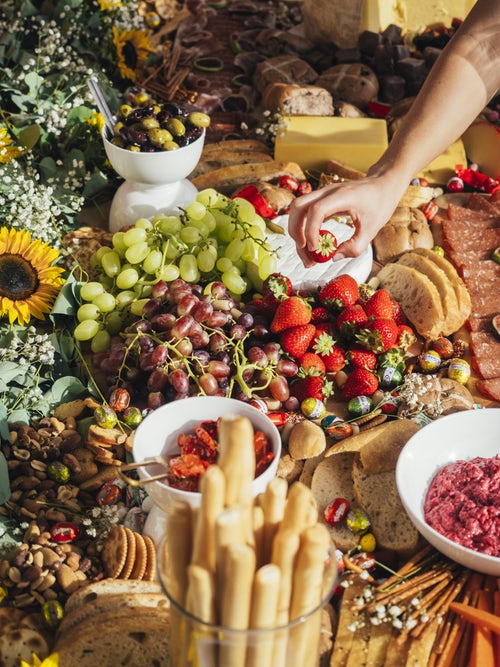“I’m in shock!”
“She always seemed so happy.”
“I didn’t have any idea.”
“Everyone loved her! She was so talented and had so much to live for.”
“I just never knew.”
The horrible reality of High Functioning Depression (HFD)—
Unfortunately, these are some of the first comments you hear following the suicide of a depressed friend or family member.
The survivors didn’t know. They were so surprised, didn’t have any idea.
Unfortunately, this is so often the tragic scenario. We’ve experienced a couple of these tragedies in my own hometown in the last couple of years. Young men who seemed to be blessed with talent, personality and great families. A bright future ahead of them.
Little did their adoring friends know they suffered such internal pain and turmoil.
But why don’t we know and recognize that pain?
Is it because we’re just not really paying attention to others, their actions and words? We’ve lost our empathy for others? We’re afraid to reach out to others to divulge our pain?
Or is it because we just don’t recognize depression in others or happening to us?
Or maybe it’s just really difficult to diagnose, like High Functioning Depression can be.
Become familiar with HFD or Chronic Depressive Disorder—
Due to the recent suicides of high-profile people, it seems depression is gaining more attention these days. With 350 million people worldwide and 3.3 million people in the United States suffering with this serious disorder, you’re bound to know someone who is chronically depressed. A family member, co-worker or friend may be suffering with, so it’s important to learn more about the disorder.
Know the warning signs of High Functioning Depression—
Because sufferers can look and act normal—and even be successful, high-achieving, and social—recognizing and diagnosing persistent depressive disorder is sometimes challenging.
In this wonderful infographic by my friends at BetterHelp, you’ll discover the warning signs and symptoms of what is known as High Functioning Depression, also known as
- Chronic Depressive Disorder
- Dysthymia
- Persistent Depressive Disorder
The kind of depression your seemingly happy family members or super-efficient, successful co-workers might be suffering from.
People like—
- the popular student
- the successful lawyer
- the smiling co-worker
BetterHelp gives you the:
- Signs
- Treatment options
- Risk Factors
- The two sides of high functioning depression
A timely topic—
And what better time of year than the holidays to discuss this issue? The time when so many of us feel overwhelmed with life, exhausted and depressed by the expectations of others and of ourselves, at a time in history when we spend so much time comparing ourselves to others on social media platforms, and become depressed about our own lives in comparison to others’.
Christmas can be a challenging time of year for anyone, but for someone who suffers from depression—any kind of depression—it can be particularly rough. They may be even more fragile than normal at this time of year.
That’s why I’ve chosen now to provide you with this beautiful infograph my friends at BetterHelp have put together. In it they highlight:
- The definition of High Functioning Depression (HFD)
- The risk factors associated with HFD
- The 2 sides of HFD
- The signs of HFD
- The treatment options
Please take the time to read this information-packed graphic BetterHelp has put together for you. If you identify with it, hopefully it’ll prompt you to seek help from counselors, like the licensed experts at BetterHelp, who are trained to help you heal and conquer this and other types of depression.
Are you or a family member suffering with high functioning depression?
For all of you going through life pretending to be happy, this may be the wake-up call and permission you need to admit that you’re not, that you want and need help.
Print it off and hang it up in a prominent location at work, maybe the break room, water cooler, or on the notice bulletin board.
Know that you and your family members, friends and co-workers are not alone, and others want to come alongside you to help.
Get the help you need—
To learn more about depression, go to BetterHelp.
And if you think you or someone you know is suffering from persistent depression disorder, or any kind of depression, don’t wait any longer to get help.
You can contact BetterHelp to connect with a licensed expert. You’ll learn more about how online therapy with a licensed therapist can help you; and they’ll walk you through the process of finding the best therapist for you, all from the convenience, comfort and privacy of your own home.

Until next week,
bring some hope—and help—to the hurting.
Blessings,
Andrea
Andrea Arthur Owan is an award-winning freelance writer, speaker, teacher and blogger. Her nonfiction and fiction work has appeared in books, secular and religious magazines and newspapers, teaching manuals, devotionals and theater productions. She is also a certified fitness pro and licensed, ordained chaplain.


